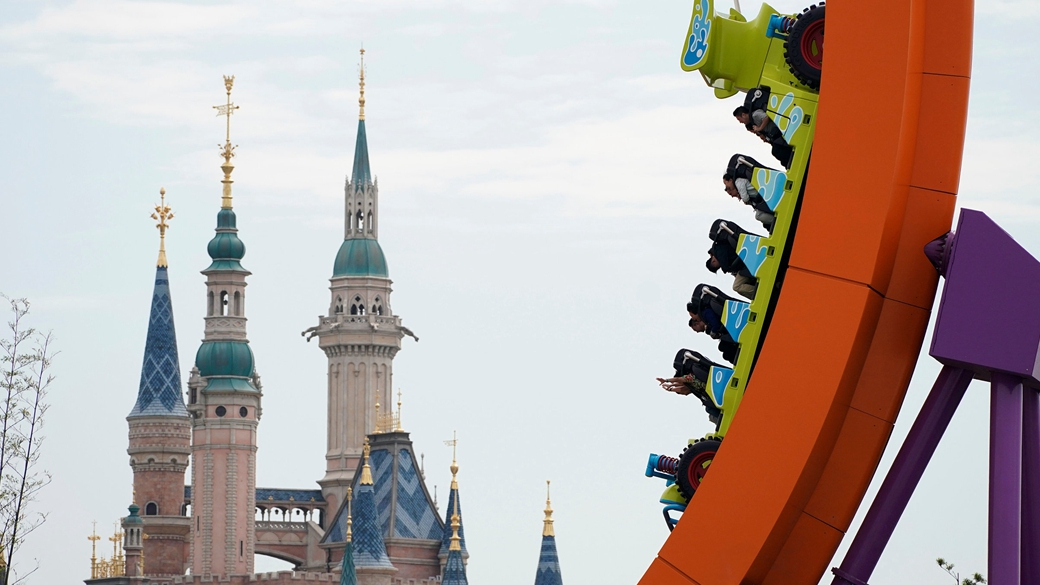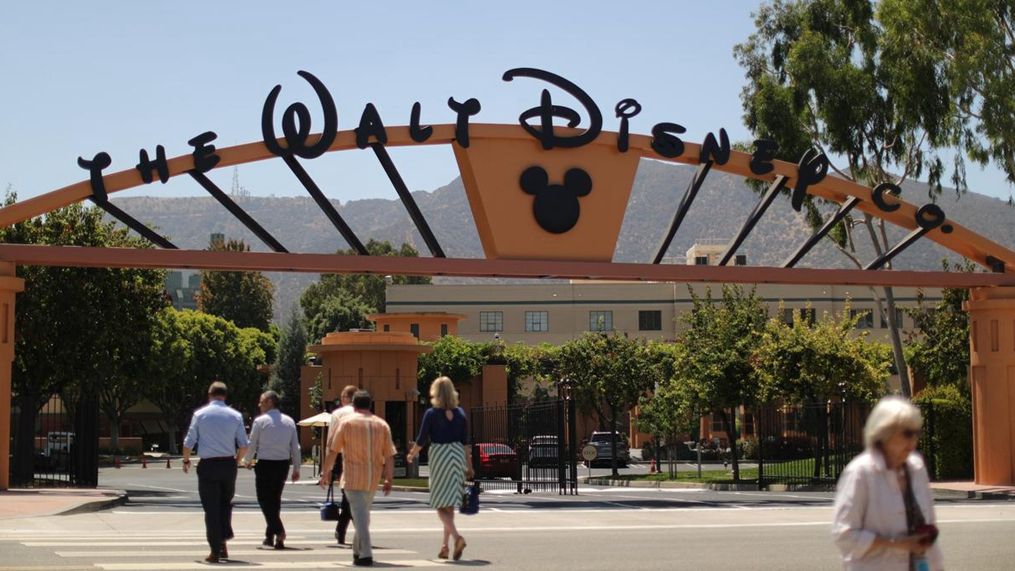
Shanghai Disneyland in Shanghai, China, April 26, 2018. /VCG
Shanghai Disneyland in Shanghai, China, April 26, 2018. /VCG
Walt Disney estimated on Tuesday that global measures to contain the coronavirus pandemic cut profits by 1.4 billion U.S. dollars, mostly from its shuttered theme parks, but said it would reopen Shanghai Disneyland to a reduced number of visitors next week.
"In total, we estimate that the COVID-19 impacts on our current quarter income from continuing operations before income taxes across all of our businesses was as much as 1.4 billion U.S. dollars," Disney said, adding that 1 billion U.S. dollars of that came from losses at theme parks.
Disney said it will not pay a dividend for the first half of the fiscal year, which will preserve 1.6 billion U.S. dollars in cash assuming it had kept the dividend constant at 88 cents per share.
Shares of Disney fell two percent in after-hours trade to 98.68 U.S. dollars, after losing two percent during the regular session. Before the earnings report, Disney's shares had lost more than one-quarter of their value this year.
Disney is expected to take a larger hit in the current quarter, which ends in June. The company said it does not intend to provide financial guidance for the rest of the year.
It has taken steps to reduce costs, including putting 120,000 employees on furlough, according a filing with securities regulators.
Executives, whose salaries have also been reduced, said they were optimistic that Disney would rebound once the coronavirus crisis subsides.
"I have absolute confidence in our ability to get through this challenging period and recover successfully," said Executive Chairman Bob Iger, who stepped down as CEO in February.
One area gaining as audiences shelter at home is Disney+, the streaming service the company launched in November. Disney+ had 54.5 million paying subscribers as of May 4, up from 50 million on April 8.
The direct-to-consumer and international unit, which includes Disney+, is still spending large sums to build the service. The division lost 812 million U.S. dollars in the just-ended quarter, less than the analyst forecast of 861 million U.S. dollars.
At the parks, experiences and products division, operating income dropped 58 percent from a year earlier to 639 million U.S. dollars.

The entrance to Walt Disney studios is seen in Burbank, California, U.S. August 6, 2018. /Reuters
The entrance to Walt Disney studios is seen in Burbank, California, U.S. August 6, 2018. /Reuters
Media networks, which include ESPN and broadcaster ABC, reported profit of 2.4 billion U.S. dollars. That was a seven-percent-increase from a year earlier, boosted in part by the addition of the FX and National Geographic Networks purchased from 21st Century Fox.
Profit at the movie studio fell eight percent from a year earlier to 466 million U.S. dollars.
Overall revenue for the quarter rose 21 percent to 18 billion U.S. dollars, just ahead of analyst forecasts of 17.8 billion U.S. dollars.
To reopen the Shanghai park on May 11
It is unclear when Disney's other parks in Asia, the United States and France would again welcome visitors, executives said, or when the company's range of idled businesses including retail stores and cruise ships would return.
Bob Chapek, who became Disney's chief executive in February just as the novel coronavirus was spreading around the globe, said Disney would reopen the Shanghai park on May 11.
"While it's too early to predict when we'll be able to begin resuming all of our operations, we are evaluating a number of different scenarios to ensure a cautious, sensible and deliberate approach to the eventual reopening of our parks," Chapek said.
Just three months ago, Disney was boasting about a record year for its movie studio and a strong start to the company's dive into the streaming media wars.
In late January, the coronavirus started battering businesses across Disney's global portfolio when the company shuttered Shanghai Disney Resort and Hong Kong Disneyland.
By mid-March, all of the company's theme parks were closed, movie theaters went dark, and television and film production were put on hold. Plus, Disney's ESPN sports network was left with no major live sports to broadcast.
Source(s): Reuters